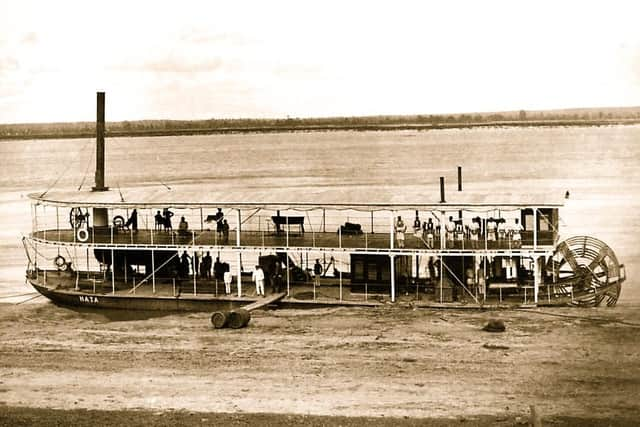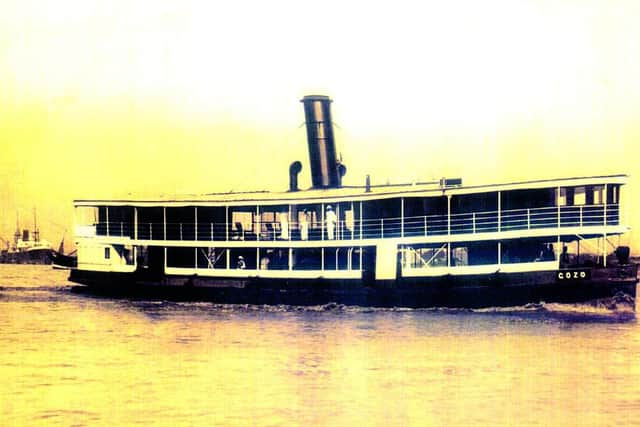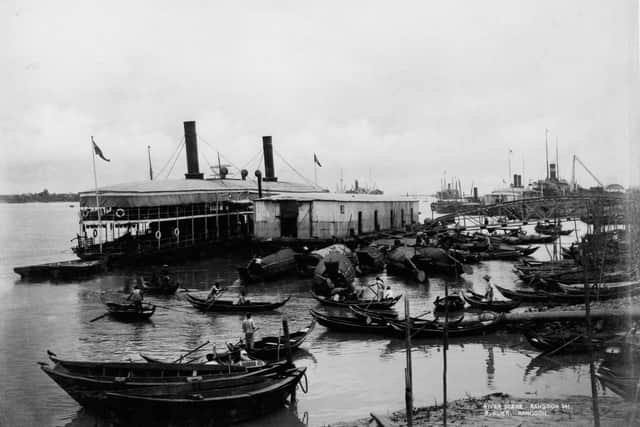Forgotten story of Scotland’s largest ever foreign enterprise – running huge paddle steamer fleet in Burma
The Irrawaddy Flotilla Company (IFC) operated the world's largest privately-owned fleet on one of the Burma’s main rivers, with Scots at the helm for nearly a century until Britain’s evacuation from the country during the Second World War in 1942.
Many of the 1,200 vessels which served in the 600-strong fleet over the years were built on the Clyde and exported in kit form to be assembled in Burma, a sizeable number from Dumbarton shipbuilder William Denny who became the IFC’s chairman after it was auctioned off by the British colonial authorities in the 1860s.
Advertisement
Hide AdAdvertisement
Hide AdHe designed a new vessels better suited to the river’s fast currents, significant seasonal change in water levels and rapidly-shifting sands.


Author Paul Strachan, who worked in Burma, now Myanmar, in the 1980s, said: "The IFC was almost entirely Scottish owned and managed, and in terms of capitalisation was, I believe, the largest overseas Scottish commercial enterprise ever.”
In The Fabulous Flotilla – Scotland's Adventure on the Rivers of Burma, he related how a large influx led to Burma having the biggest concentration of Scots outside Scotland apart from Canada by the 1920s, who also ran the three other pillars of its economy – rice, teak and oil.
Strachan wrote: “Burma was Scotland’s very own colony. Nearly all businesses there were Scottish … [Scots] dominated every aspect of life.
"Scots ran everything. They were the down-to-earth policemen and customs officers, lofty ‘heaven born’ civil servants, gnarled ships’ skippers and their sooty engineers, and, of course, the ubiquitous Scottish doctor in the city hospital or hill station clinic.”


The IFC’s paddle steamers were among the largest in the world, transporting much of the country’s exports down the Irrawaddy, which is navigable for more than 1,000 miles, and imports upstream. They also carried more than six million passengers a year – half of Burma’s population.
The vessels were immortalised by Rudyard Kipling’s 1890 poem Mandalay: "Come you back to Mandalay, Where the old Flotilla lay; Can't you 'ear their paddles chunkin' from Rangoon to Mandalay."
Strachan said the steamers became riverine versions of ocean liners with their plush cabins. The largest class of ships carried up to 5,000 passengers, including royalty, writers like Somerset Maugham and big game hunters.
Advertisement
Hide AdAdvertisement
Hide AdOne wrote: “The food was good, and very Scottish with Dundee marmalade and Crawford’s biscuits, and porridge daily.”


Strachan wrote in the book, from Caithness-based Whittles Publishing: "It is, alas, a story much forgotten, and I hope this will revive interest. The flotilla truly was one of Scotland’s greatest achievements.” He said hundreds of descendants of retired flotilla staff lived in the Helensburgh area.
Most of the fleet was scuppered or bombed by the RAF during the British retreat to prevent it getting into the hands of the invading Japanese, in what Strachan described as the greatest single loss of British merchant shipping ever.
He also noted that after Burma gained independence in 1948, the IFC, despite having helped the country to prosper, became a “fitting scapegoat” and was portrayed as a “vicious exploiter … emblematic of the reviled colonial experience”.
Comments
Want to join the conversation? Please or to comment on this article.